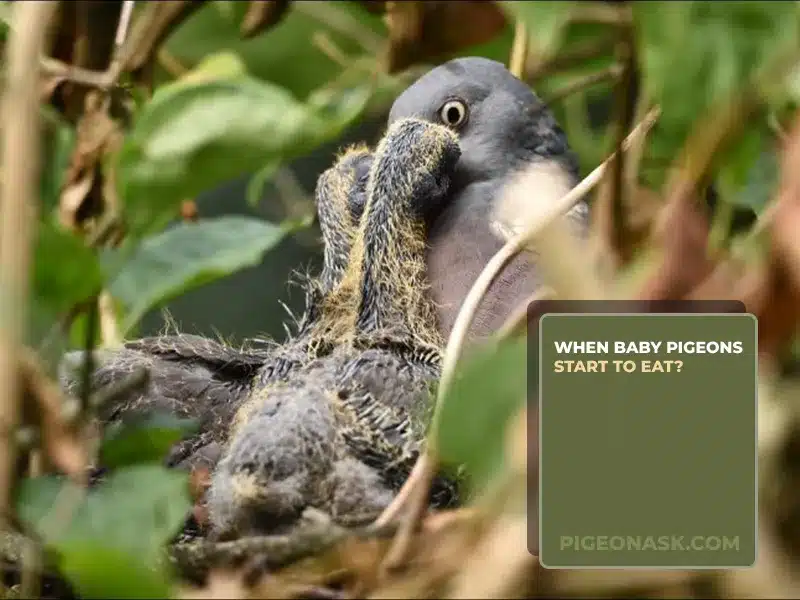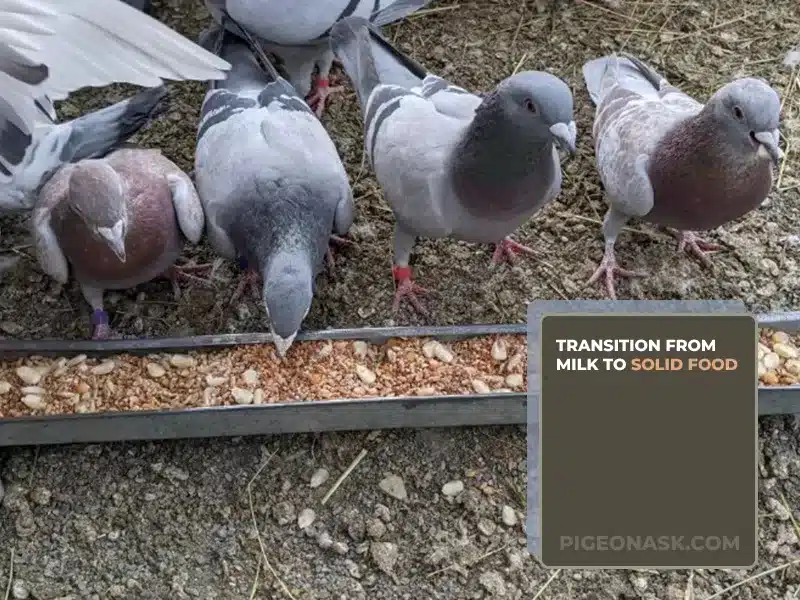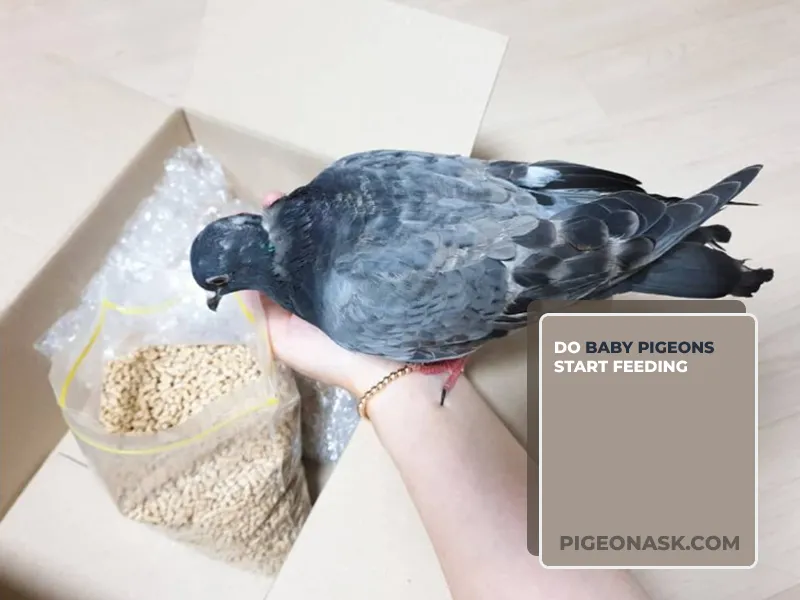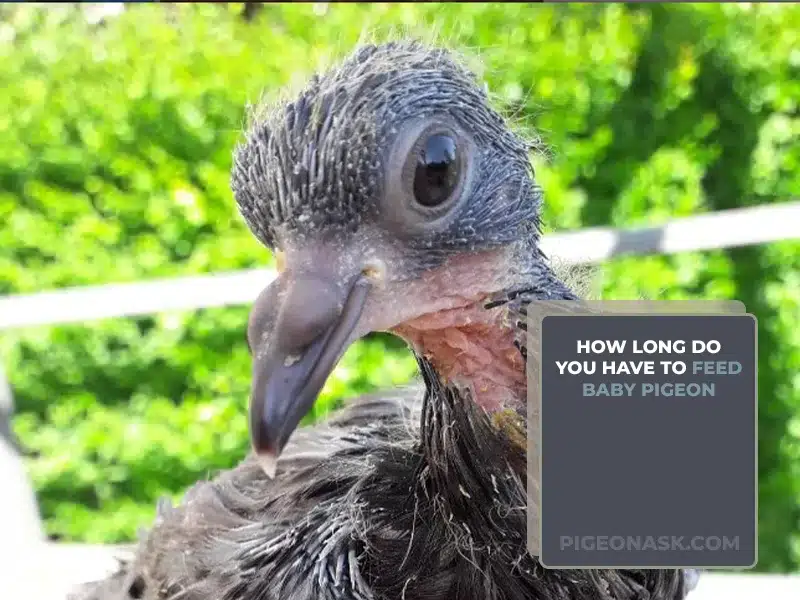When Can Baby Pigeons Feed Themselves?
Pigeons raise their offspring differently. Young pigeons also spend at least a few weeks in the nest. Does it mean they won’t need your help with meals during that time? If not, when can baby pigeons feed themselves?
Baby pigeons can not feed themselves for around four weeks after hatching. During the first two weeks, they strictly rely on crop feed. Then, they start to eat regular food such as seeds. Finally, after 28 days, baby pigeons can source food independently.
Now, the question is, what does the feeding cycle of baby pigeons look like? And are there any factors that dictate how soon baby pigeons can feed themselves? This article will review these questions and more to deepen your understanding.
Looking for more articles about pigeon parenting:
When Do Baby Pigeons Start to Eat?
Baby pigeons hatch out from their eggs after around 18 days of incubation. During this period, both parents take turns and sit on the eggs. And when the eggs hatch, squabs will have pink or darkish skin with minimal feathers on the skin.

Newly born baby pigeons have feet, wings, and beaks that are proportionally larger than their bodies. For that reason, they generally do not move too much after being born. But pigeon parents do know that their squabs need to be fed immediately.
For that reason, the parents will start to feed regurgitated crop milk within 2 hours of hatching. And the babies will live primarily off the crop milk for around two weeks.
On that note, crop milk is a secretion that comes from the lining of the crop of the parent birds. As you can guess, it is called “crop milk” because it comes from special cells within the birds’ crop. And generally, pigeons can start to produce this milk a few days before the eggs hatch.
When Do Baby Pigeons Transition from Crop Milk to Solid Food?
As mentioned earlier, baby pigeons primarily live off crop milk during the first two weeks. But in general, pigeon parents will start to offer crop milk with seeds after the first four days.

That continues for around two weeks. Afterward, the parents make the squabs adjust to an adult diet. That includes fruits and seeds. Occasionally, the parents will offer small invertebrates.
At What Age Do Baby Pigeons Start Feeding Themselves?
Baby pigeons need to be fed for around four weeks. During this period, they will rely heavily on their parents. And to ask for food, the squabs will typically open their beaks and make squeaking sounds.

Both males and females can make the crop milk. So, when either of the parents sees that their babies are asking for food, they will feed them with the crop milk during the first fourteen days. Afterward, the baby pigeons slowly make the transition to an adult diet.
Nonetheless, after about three to four weeks, baby pigeons will start to learn how to source food by themselves. Pigeon’s parents are very supportive regarding this. Therefore, infants can learn to self-feed rather quickly.
How Long Do You Have to Feed a Baby Pigeon?
Baby pigeons can have different growth rates in natural and artificial settings. If you are hand-feeding the squabs, they can take longer than four weeks to learn how to feed themselves.
However, replicating the natural process can surely help. For example, start with a thinly mixed hand-rearing formula for the first week. These formulas will replicate the crop milk and offer the squabs all the nutrients they need to thrive.

After the first few days, thicken the formula and offer more than the usual rate. Then, start adding seeds to the diet. After about three weeks, the baby pigeons will not require the formula anymore.
However, do not force them to adapt to the adult feed if they are struggling. Instead, keep offering the formula and the seeds for about four weeks and then make a complete transition.
Final Words
So, when can baby pigeons feed themselves? To recapitulate, baby pigeons rely strictly on their parents for about four weeks. During this period, they cannot source food and defend themselves. After four weeks, they can feed themselves.
Did you find this article helpful with all that out of the way? Then, you will love our future posts! If you want to stay current, follow us on social media. We’re always on Twitter, Facebook, and Pinterest.
References:
- https://birdfact.com/articles/baby-pigeons
- https://www.wikihow.pet/Care-for-a-Fledgling-Pigeon
